Best Yamaha digital pianos: Including picks from the Arius, Clavinova, AvantGrand and P Series
Dive deep into Yamaha’s digital piano range with our recommendations for every budget
Want all the hottest music and gear news, reviews, deals, features and more, direct to your inbox? Sign up here.
You are now subscribed
Your newsletter sign-up was successful
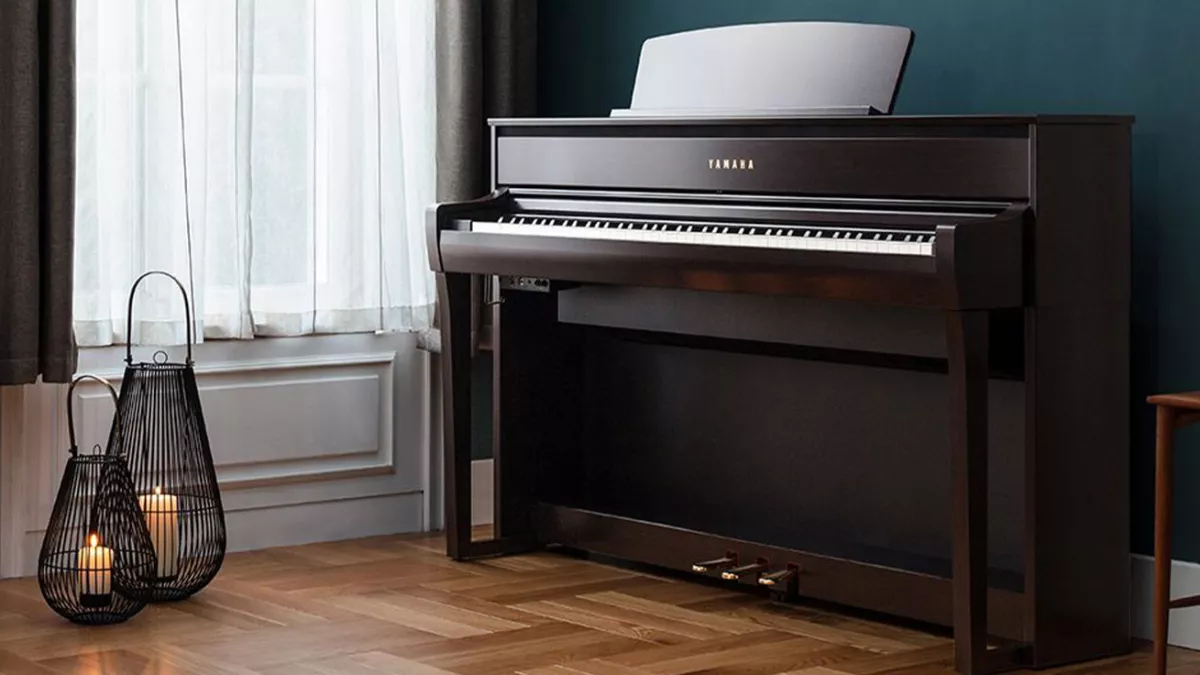
1. Quick list
2. Best overall
3. Best for beginners
4. Best on a budget
5. Best for stage
6. Best grand piano
7. Best digital hybrid
8. Buying advice
9. How we choose
Ask anyone on the street to name three piano manufacturers and you can almost guarantee that Yamaha will be the first one that most people think of. The Japanese company have been at the top of the piano tree for decades, building a reputation as producers of some of the finest acoustic pianos in the world since their debut in 1900 - the flagship Yamaha CFX concert grand retails for £140,000 and is revered by professional concert pianists the world over. With a pedigree like that, you'd expect them also to know a thing or two about making great digital pianos, and you'd not be wrong, with a number of distinct model ranges, including the Clavinova, Arius, Portable Grand and P-Series pianos on their roster.
Having decided on one of the best Yamaha digital pianos means you’ve already made a great decision, but once you’ve arrived at that point, where next? Such a wide range of products can be a bit bewildering when you're looking for the perfect instrument, so we've put together this buyer's guide to help you navigate Yamaha’s densely-populated digital piano line-up.
We've got some handy buying advice further down the page, too, to help you understand the nuances of each series.

Dave has been making music with computers since 1988 and his engineering, programming and keyboard-playing has featured on recordings by artists including George Michael, Kylie and Gary Barlow. A music technology writer since 2007, he’s Computer Music’s long-serving songwriting and music theory columnist, iCreate magazine’s resident Logic Pro expert and a regular contributor to MusicRadar and Attack Magazine.
Best Yamaha digital pianos: Quick list
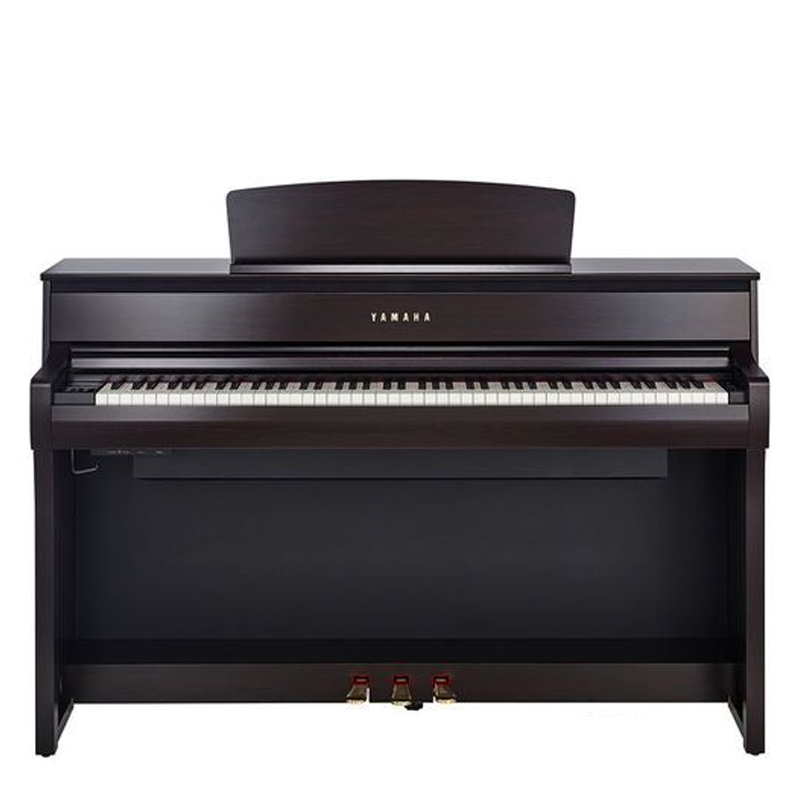
Occupying an upper-mid slot in the current CLP-700 range, the CLP-775 is a compact digital model that looks every inch the classic home piano, resembling a cut-down upright piano but sounding like a concert grand. The grand experience is perpetuated by the inclusion of Yamaha’s GrandTouch keyboard action with individually calibrated wooden keys.
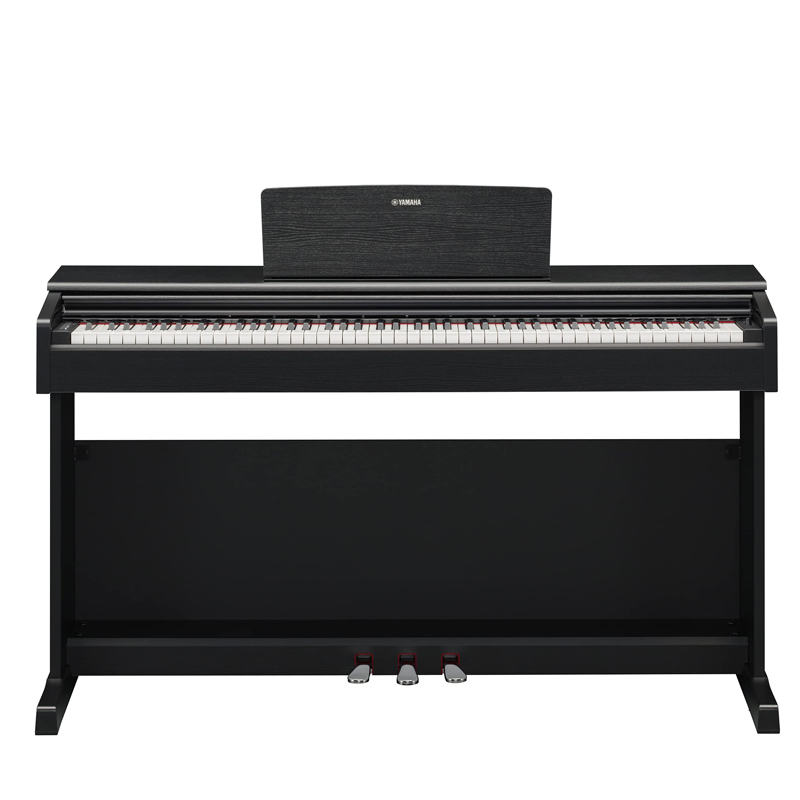
Simple enough to appeal to beginners, yet versatile enough to deliver a rewarding experience for more advanced players, the YDP-145 is popular with piano teachers and students alike because of its fabulous CFX grand piano sound, dual headphone jacks and wonderfully playable GHS keyboard.
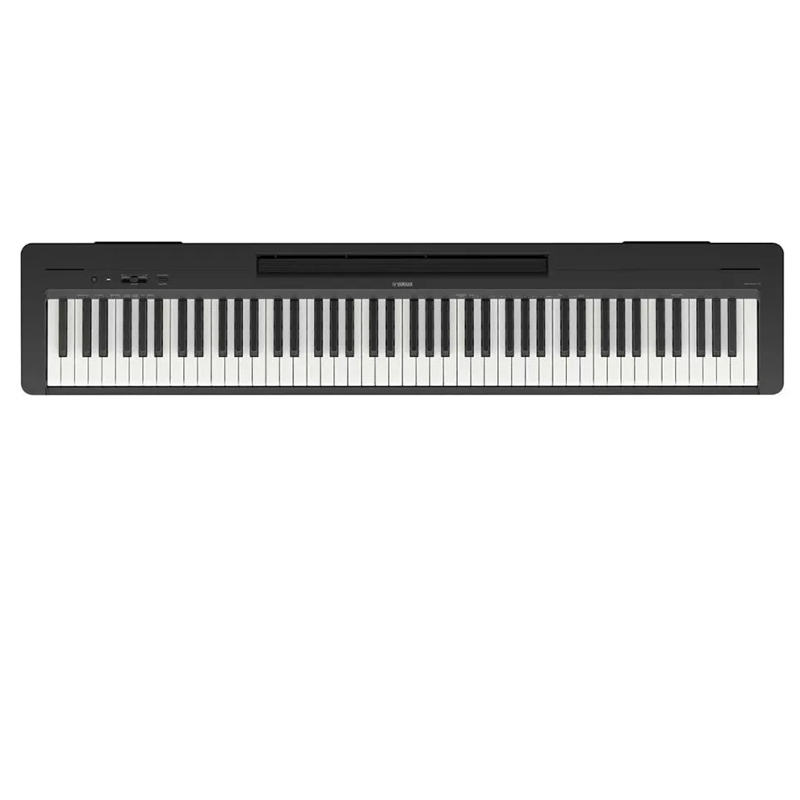
The P-45 portable digital piano has been around almost as long as the wheel, and finally, Yamaha is here with a new version, the P-145. Offering newbie players excellent sound, thanks to the AWM sound engine, portability, and the excellent GHC keyboard at an affordable price, this is one of the best Yamaha digital pianos available right now.
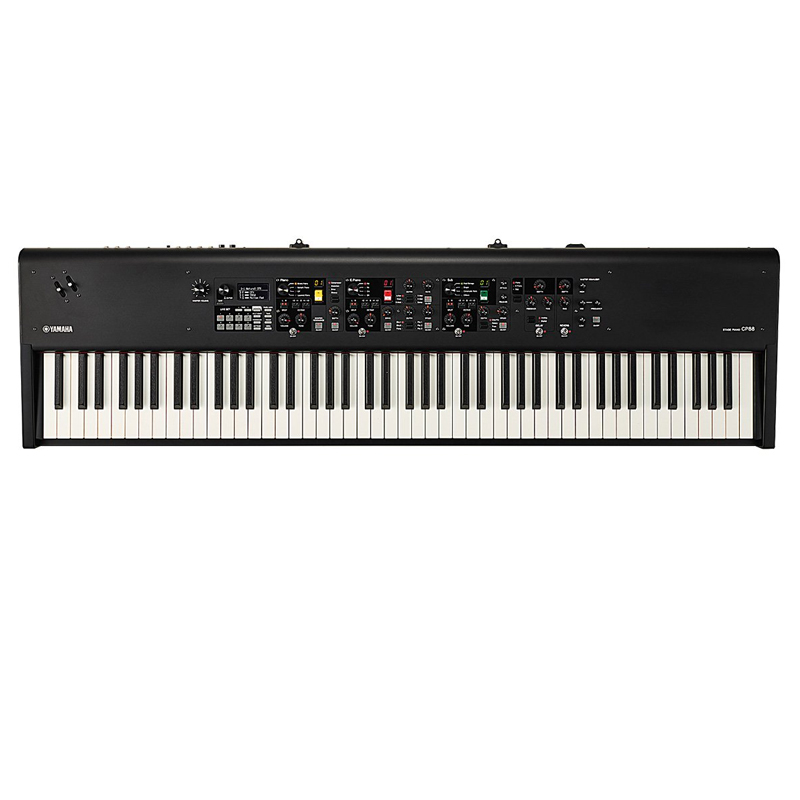
Strictly speaking, the CP-88 is a stage piano, meaning that it's designed to be used on stage at a gig, and thus has no speakers. It does offer plenty of connectivity however, and is portable enough to be chucked into the back of a Transit van without slipping a disc. We've included it because, despite its lack of speakers, it is technically a digital piano and provides a brilliant solution for pro and semi-pro gigging musos.
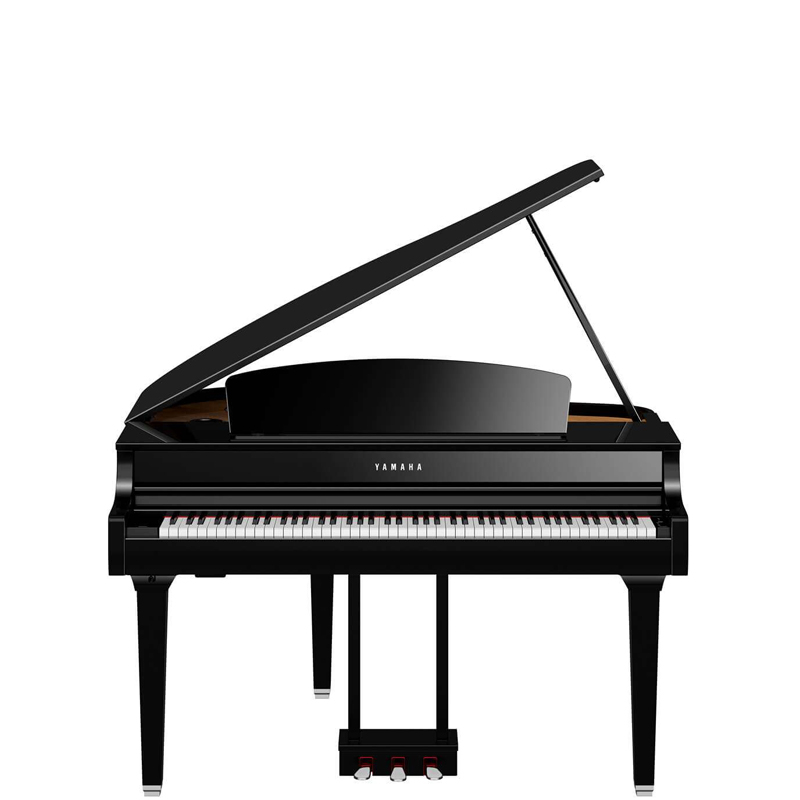
Looking to all intents and purposes like an acoustic baby grand piano, the CLP-795GP sits at the top of the Clavinova CLP range. The difference is that this grand has literally no strings attached - in place of an acoustic grand piano's soundboard and strings there is a beautifully finished polished wooden housing containing a number of shiny round speakers, laid out in what Yamaha call a Grand Acoustic Imaging array.
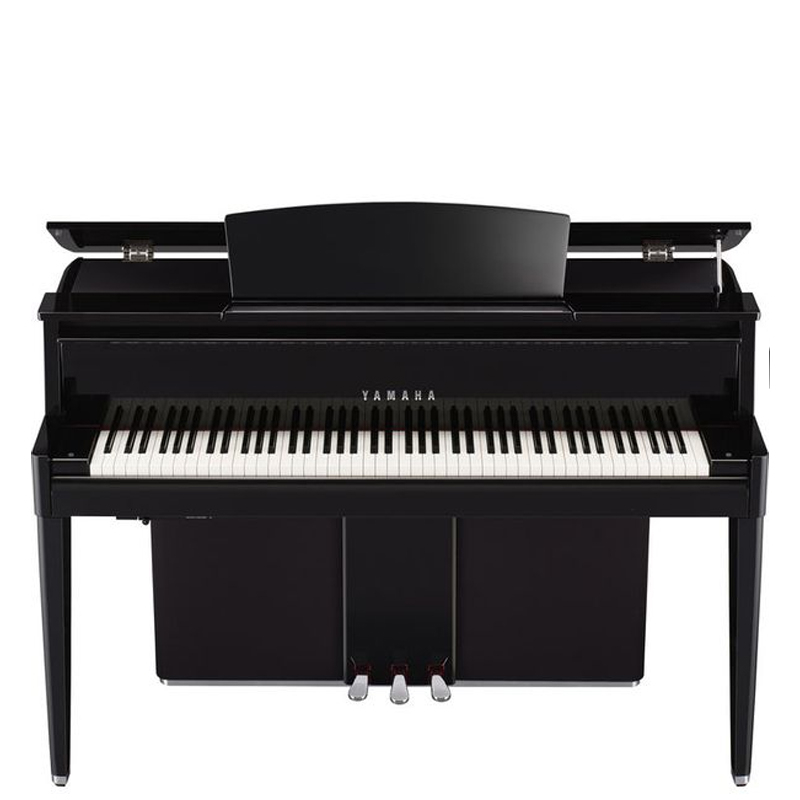
Imagine taking one of the world’s finest acoustic upright pianos, removing the strings and soundboard and replacing them with a digital sound generator, leaving only the keyboard mechanism and hammers intact. What you’d be left with is essentially the N-1X AvantGuard hybrid digital piano. In a slightly unusual design that resembles the cut-off front end of a grand piano, the N-1X promises grand piano performance in the body of an upright.
05/06/24: We've reviewed our product choices to ensure we are recommending the latest and greatest from Yamaha.
13/09/23: We replaced the much-loved Yamaha P-45 with the brand-new version, P-145. We recently reviewed the P-145, putting it through its paces to see if it could live up to its predecessor - and we must say, we were mighty impressed with this modern update of a classic beginner digital piano.
Best overall
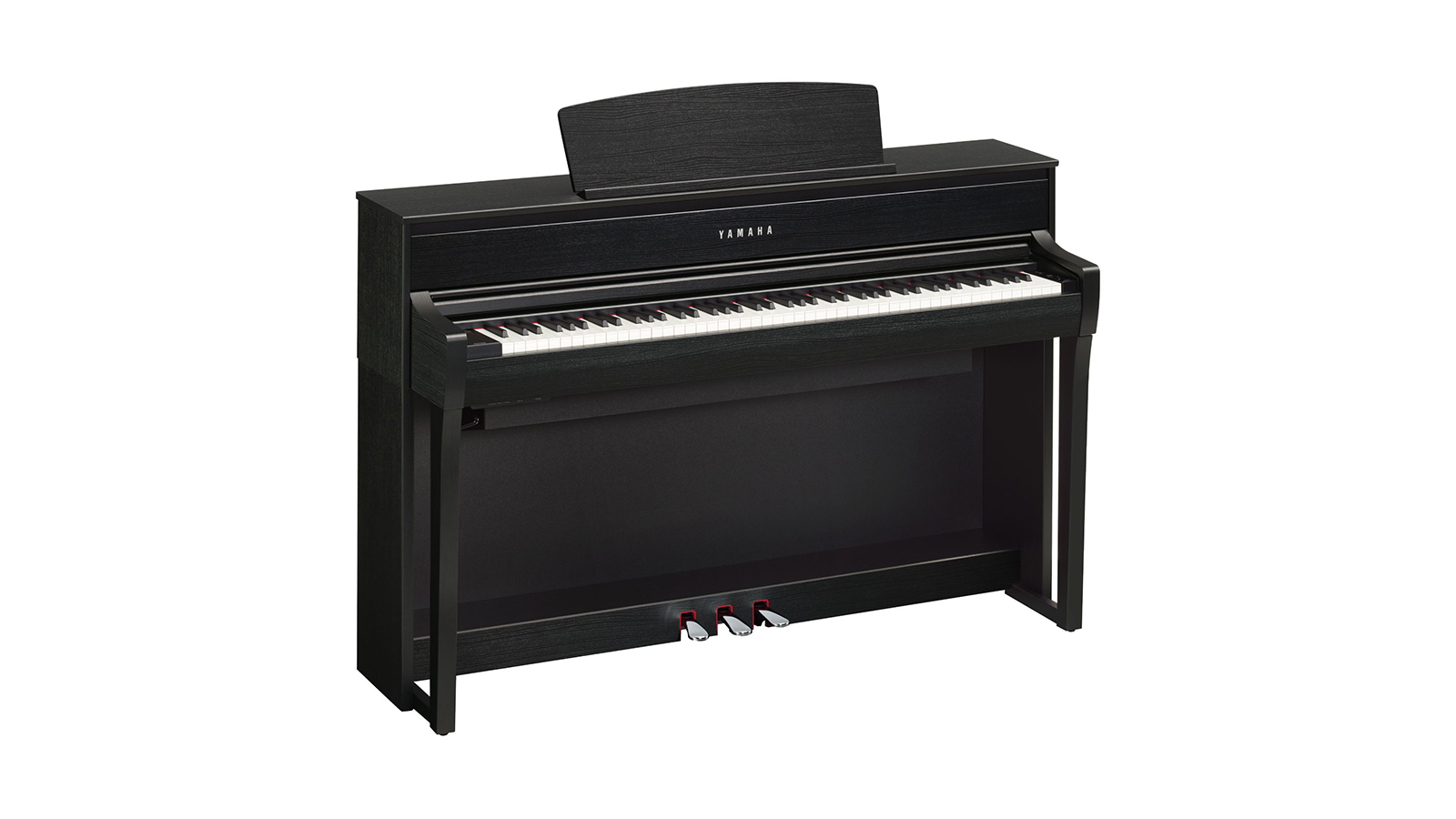
Specifications
Reasons to buy
Reasons to avoid
Occupying an upper-mid slot in the current CLP-700 range, the CLP-775 is a compact console model that looks every inch the classic home piano, resembling a cut-down upright piano but sounding like a concert grand.
The grand experience is perpetuated by the inclusion of Yamaha’s GrandTouch keyboard action with individually calibrated wooden keys which, together with the Grand Piano Response damper pedal, makes the 775 a joy to play whatever your level of ability.
If you're in the market for a high-quality, great-sounding digital piano for the home that's as close as you can get to the feel of an acoustic grand, we'd recommend the CLP-775 in a heartbeat.
Read the full Yamaha Clavinova CLP-775 review
Best beginner piano
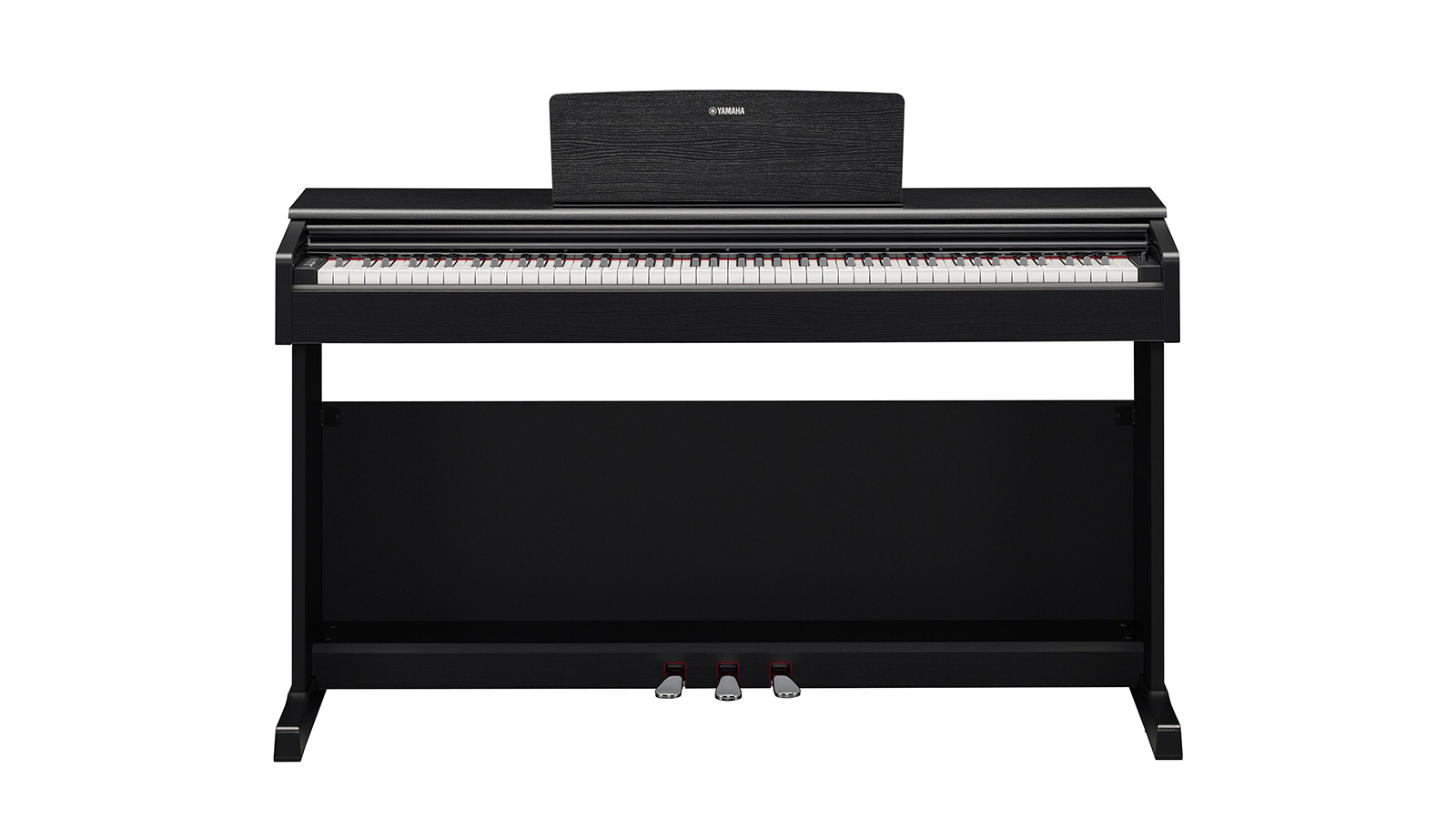
Specifications
Reasons to buy
Reasons to avoid
Bridging the gap between Yamaha's P-series portable digital pianos and their costlier Clavinova range, the best-selling YDP-145 hits the sweet spot between affordability and advanced features.
Simple enough to appeal to beginners, yet versatile enough to deliver a rewarding experience for more advanced players, the YDP-145 is popular with piano teachers and students alike because of its fabulous CFX grand piano sound, dual headphone jacks and wonderfully playable GHS keyboard.
Available in a choice of White, Rosewood and Black finishes, the YDP-145 delivers an authentic piano-playing experience in a stylish and compact package that won't dominate your living room.
Read our full Yamaha Arius YDP-145 review
Best on a budget
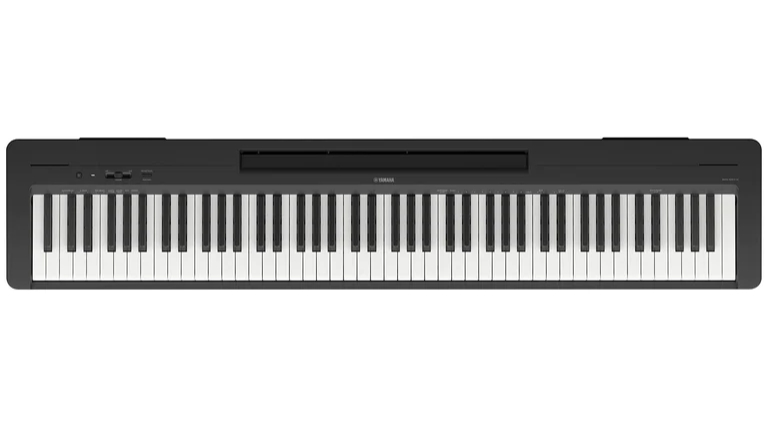
Specifications
Reasons to buy
Reasons to avoid
The P-45 portable digital piano has been around almost as long as the wheel, and finally, Yamaha is here with a new version, the P-145.
Offering newbie players excellent sound, thanks to the AWM sound engine, portability, and the excellent GHC keyboard at an affordable price, this is one of the best Yamaha digital pianos available right now.
To sum up, it's a great basic piano for not a lot of money - it doesn't have fancy features like Bluetooth audio, but if all you want is a decent-sounding portable piano with a great-feeling keyboard and that signature Yamaha sound, then this is the piano for you.
Read our full Yamaha P-145 review
Best for the stage
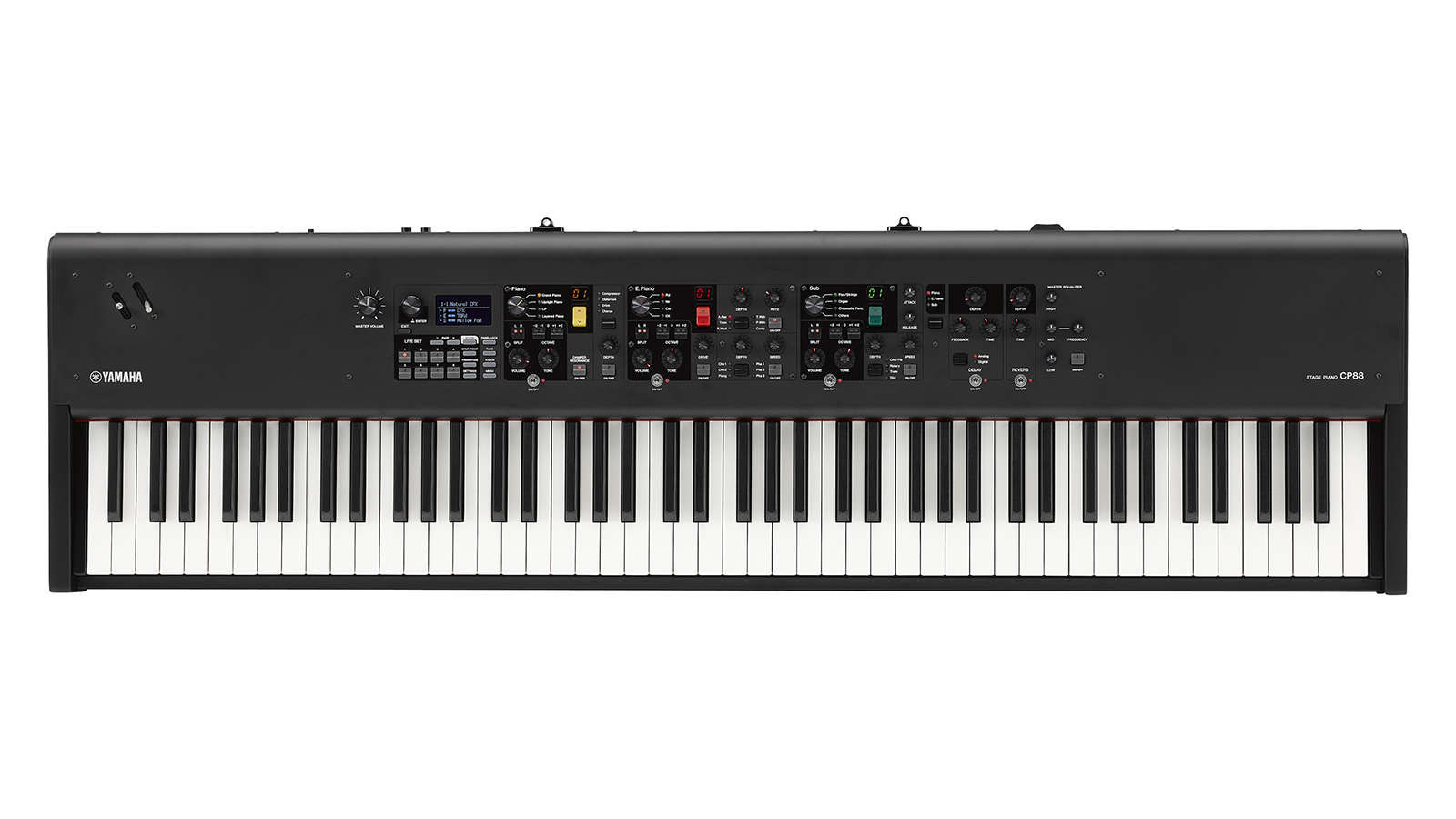
Specifications
Reasons to buy
Reasons to avoid
Strictly speaking, the CP-88 is a stage piano, meaning that it's designed to be used on stage at a gig, and thus has no speakers. It does offer plenty of connectivity however, and is portable enough to be chucked into the back of a Transit van without slipping a disc.
We've decided to include it in this list because, despite its lack of speakers, it is technically a digital piano and provides a brilliant solution for pro and semi-pro gigging musos. The only downside is that you'll need to connect it to a PA speaker system or a set of headphones to hear anything.
Sound wise, the CP-88 more than has you covered, featuring three premium concert grand pianos: the Yamaha CFX, Yamaha S700 and the Bösendorfer Imperial 290, as well as two Yamaha uprights, the U1 and the SU7, together with a wide variety of incredibly usable electric piano, organ, clavinet, synth and string sounds.
Read our full Yamaha CP-88 review
Best grand piano
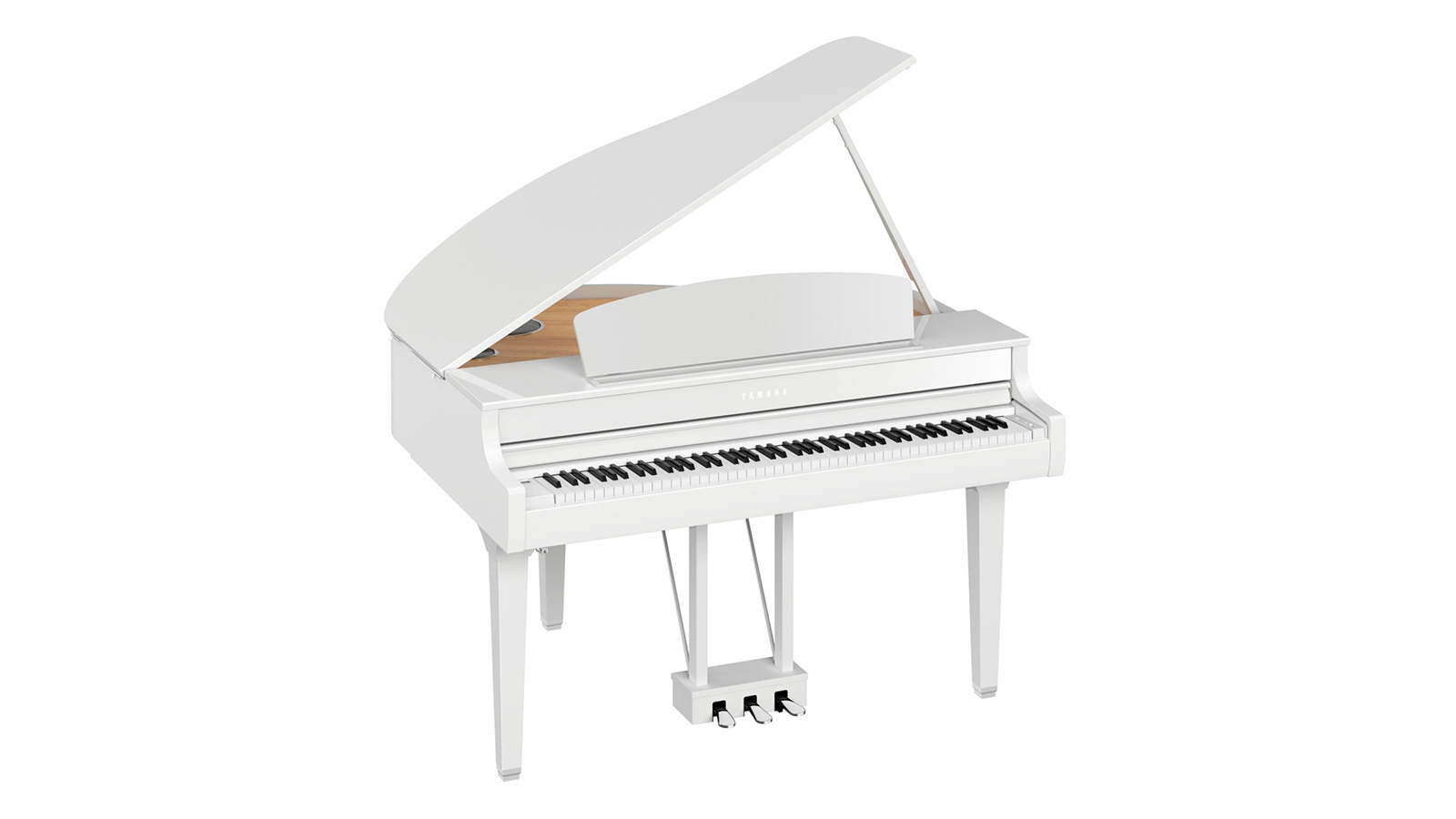
5. Yamaha CLP-795GP
Our expert review:
Specifications
Reasons to buy
Reasons to avoid
Looking to all intents and purposes like an acoustic baby grand piano, the CLP-795GP sits at the top of the Clavinova CLP range. The difference is that this grand has literally no strings attached - in place of an acoustic grand piano's soundboard and strings there is a beautifully finished polished wooden housing containing a number of shiny round speakers, laid out in what Yamaha call a Grand Acoustic Imaging array.
The CLP-795GP receives all the grand piano accoutrements from the CLP features list, namely the GrandTouch keyboard with wooden white keys and an increased length from the tip of the key to the fulcrum, to the GP response damper pedal that closely tracks the continuous pedal depression behaviour of an acoustic grand.
The signature 700-series touch sensor control panel effectively maintains the traditional look, and there's full Bluetooth functionality, with Bluetooth audio built in and wireless compatibility with the Smart Pianist app via Bluetooth MIDI. This all adds up to a beautiful-sounding instrument that's not only rewarding to play but will add elegance to any home that has the space for it.
Best digital hybrid
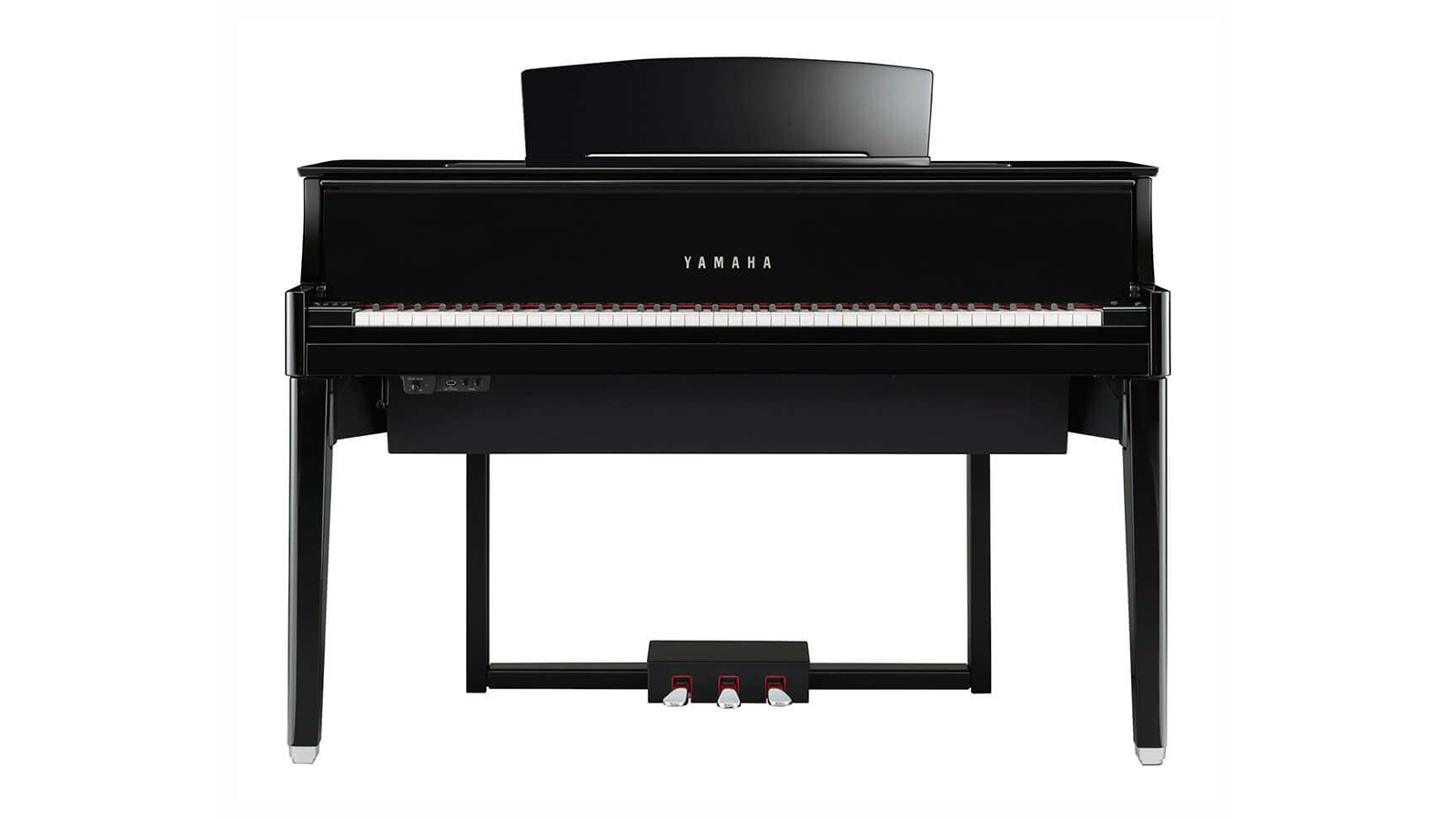
6. Yamaha N-1X Avantgrand
Our expert review:
Specifications
Reasons to buy
Reasons to avoid
Imagine taking one of the world’s finest acoustic upright pianos, removing the strings and soundboard and replacing them with a digital sound generator, leaving only the keyboard mechanism and hammers intact. What you’d be left with is essentially the N-1X AvantGuard hybrid digital piano.
In a slightly unusual design that resembles the cut-off front end of a grand piano, the N-1X promises grand piano performance in the body of an upright, with a high-performance speaker system designed to ensure that the sound is projected in a manner virtually identical to that of an acoustic instrument.
The ace up its sleeve though, is that authentic grand piano action, identical to that of an actual Yamaha grand, which when coupled with the fantastic CFX and Bosendorfer sample sets and advanced features like dual headphone outputs, Bluetooth audio streaming capability and compatibility with Smart Pianist, makes the N-1X an absolute joy to play.
Buying advice
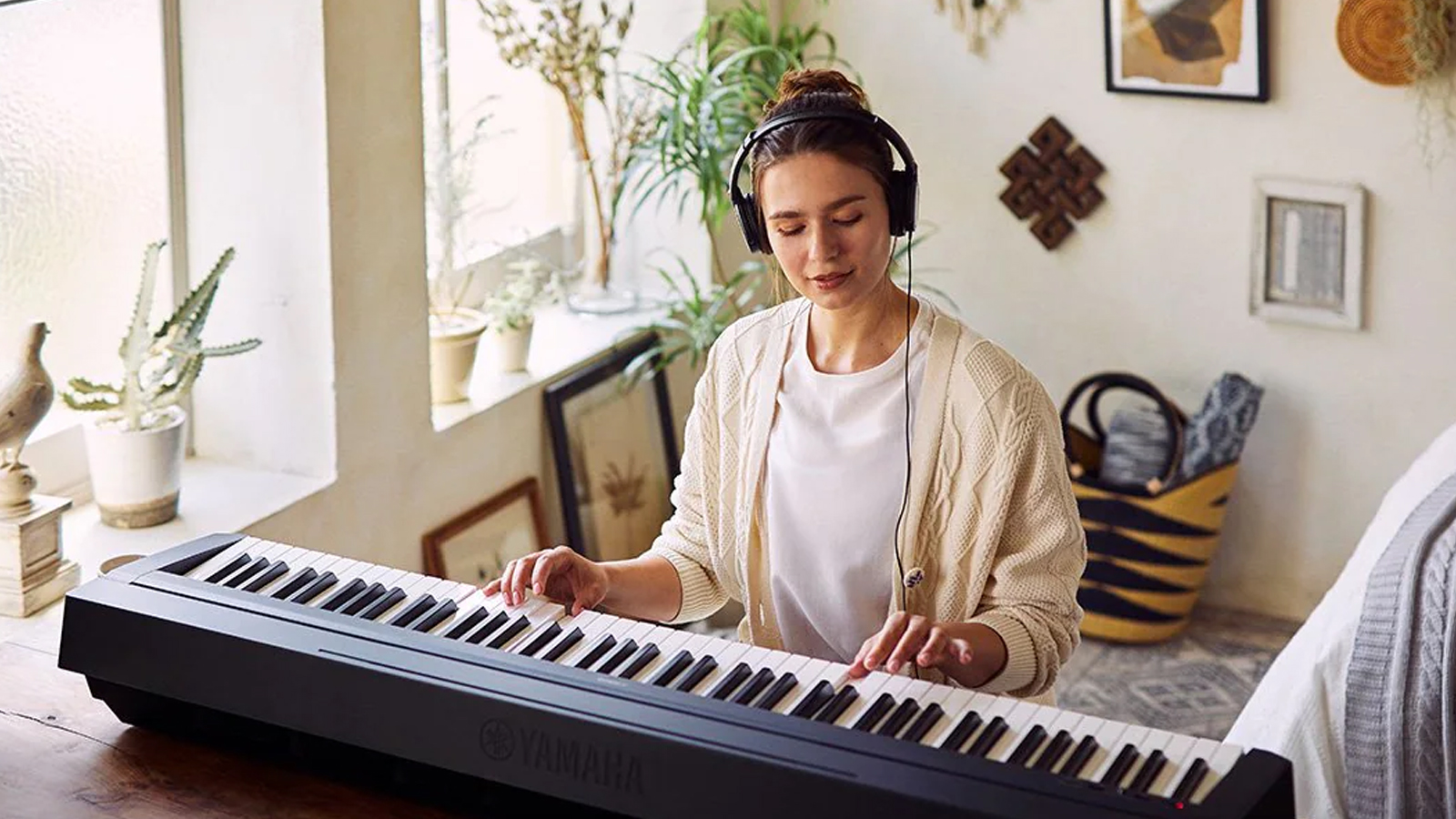
What is a digital piano?
Most people would acknowledge that acoustic pianos, traditionally made of wood with iron frames, felt hammers and steel strings, are wonderful-sounding and beautiful-looking instruments, but they do have a few drawbacks. They're very heavy items, they require regular tuning to sound their best - they can be affected by humidity and extreme temperatures, but most of all they're quite loud, so if you have thin walls, sensitive neighbours or both, you can run into problems if they take umbrage with you practising at different times of the day.
In contrast, a digital piano produces its sound electronically, so can be hooked up to a pair of digital piano headphones and played as loud as you like without disturbing anyone. Digital pianos are much lighter and easier to maintain than their acoustic counterparts, don't require tuning, aren't affected by humidity or temperature and can produce a variety of sounds besides just piano tones. Being electronic, they also feature cutting edge technology such as Bluetooth connectivity, which makes them a breeze to use with the wide selection of currently available online piano lesson services and apps such as Flowkey, Skoove, Pianote and Playground Sessions.
A great digital piano will have an authentic-feeling 88-note keyboard with weighted keys that respond just like those on an acoustic instrument, and at least one exceptional grand piano sound that can be played either through onboard speakers or through a set of connected headphones. Yamaha provides a wide range of digital piano model families to suit a variety of use cases, all of which satisfy these two basic criteria.
What are the main Yamaha digital piano series’?
P Series: The portable P-series are great for travelling pianists who want a piano they can gig with or for beginners to set up to practise in a small bedroom or apartment.
Arius: The Arius range of compact home console-style pianos are designed to enhance smaller spaces without being overbearing. They’re brilliant for beginners, particularly families with kids who want to start learning.
Clavinova: The Clavinova line represents the more upmarket home digital pianos, with more sophisticated speaker systems, upgraded keyboards and other more advanced features.
Portable Grand: The Portable Grand range currently consists of just one model, the DGX-670, which is more of a piano/arranger keyboard hybrid instrument with multiple sounds and auto-accompaniment styles.
AvantGrand: At the upper end of the scale are the AvantGrand hybrid pianos, which feature stringless acoustic actions mated to digital sound modules for the ultimate blend of acoustic and digital technology.
What is Yamaha Smart Pianist?
The majority of instruments in Yamaha's digital piano family are compatible with the company's Smart Pianist mobile app, so no buyer’s guide covering Yamaha digital pianos would be complete without mentioning this incredibly useful companion. Smart Pianist is a single app that senses which model of piano you’ve connected it to and makes available the features that are compatible with that model. These include selecting and editing the piano sounds, accessing extra voices, performing with a built-in backup band or orchestra, playing along with built-in songs or recordings from your favourite bands and artists and helping to develop your skills with extensive interactive lesson programmes.
Using Smart Pianist on a connected mobile device such as an iPad or Android tablet can significantly enhance how you use your Yamaha piano, adding what is effectively a large touchscreen colour display to your instrument that makes it even more of a joy to use.
How we chose the best Yamaha digital pianos
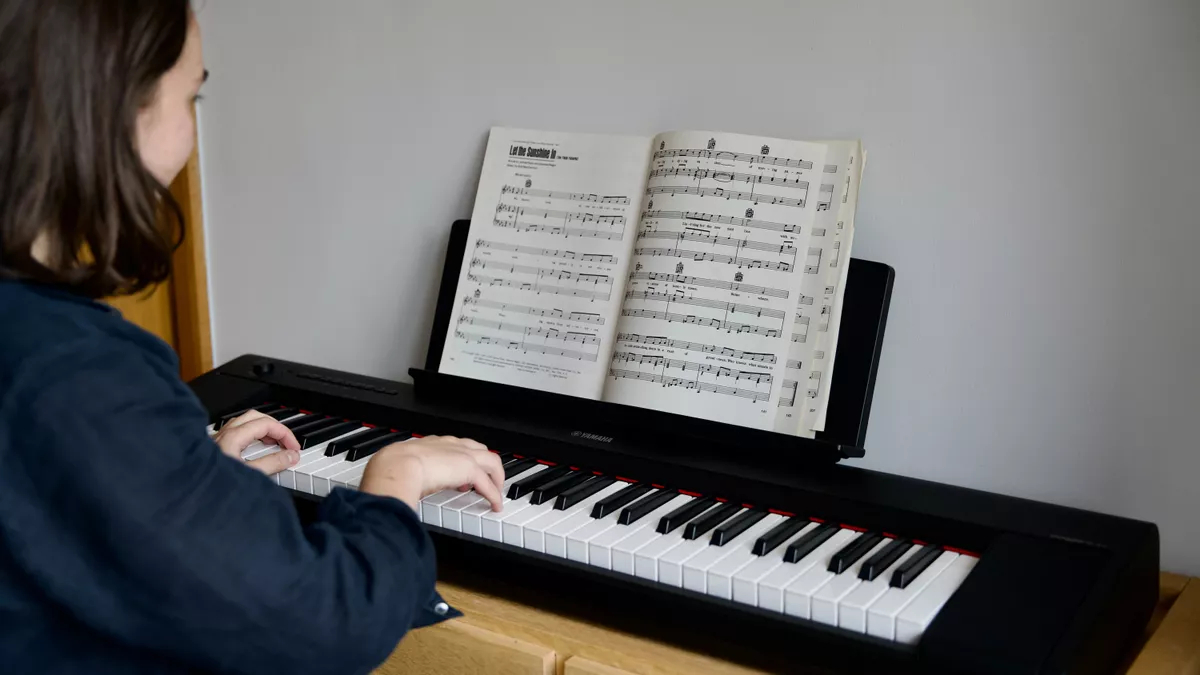
Here at MusicRadar, we are experts in our field, with many years of playing, creating and product testing between us. We live and breathe everything music gear related, and we draw on this knowledge and experience of using products in live, recording and rehearsal scenarios when selecting the products for our guides.
When choosing what we believe to be the best Yamaha digital pianos available right now, we combine our hands-on experience, user reviews and testimonies and engage in lengthy discussions with our editorial colleagues to reach a consensus about the top products in any given category.
First and foremost, we are musicians, and we want other players to find the right product for them. So we take into careful consideration everything from budget to feature set, ease of use and durability to come up with a list of what we can safely say are the best Yamaha digital pianos on the market right now.
Find out more about how we test music gear and services at MusicRadar.
Related buyer's guides
MusicRadar's got your back
- Best digital pianos for beginners: start playing today
- Best digital pianos under $1,000/£1,000: budget-friendly choices
- Best Yamaha keyboards: top picks for home music makers
- Best piano benches: piano stool options to suit all budgets
- Best music stands: from On-Stage, K&M, Donner and more
- Alternative options with the best Roland digital pianos
Want all the hottest music and gear news, reviews, deals, features and more, direct to your inbox? Sign up here.
Dave has been making music with computers since 1988 and his engineering, programming and keyboard-playing has featured on recordings by artists including George Michael, Kylie and Gary Barlow. A music technology writer since 2007, he’s Computer Music’s long-serving songwriting and music theory columnist, iCreate magazine’s resident Logic Pro expert and a regular contributor to MusicRadar and Attack Magazine. He also lectures on synthesis at Leeds Conservatoire of Music and is the author of Avid Pro Tools Basics.